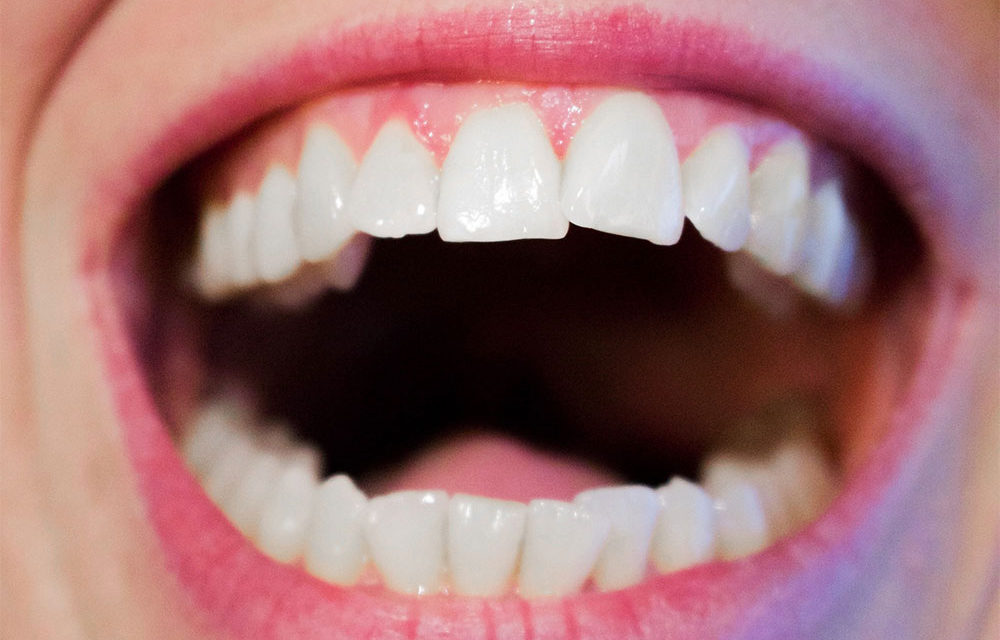

When we think of the word cancer, we automatically align the word with a malicious disease that primarily affects our lungs, breasts, prostate, skin, and even cancer of the blood. There are, however, growing numbers of individuals who are now suffering from mouth cancer.
November is Mouth Cancer Action Month, and at Evolve Dentistry we think it’s vital that more people are made aware of this growing concern.
What exactly is mouth cancer?
Cancer of the mouth can affect the lips, gums, tongue and cheeks, and in the last year alone around 7,000 cases were diagnosed in the UK alone. The Oral Health Foundation finds this to be an increase of 1/3 in comparison to the previous decade.
Mouth cancer takes the form of tumours within the mouth in salivary glands or throat. The most common type of mouth cancer is called Squamous Cell Carcinoma. Other types of mouth cancer include adenocarcinomas, which is produced in the salivary glands, lymphomas and oral melanomas.
Causes
Typical causes of mouth cancer include excessive smoking and drinking. Recent research has found that cases of mouth cancer have been linked to the human papillomavirus (HPV), which is more traditionally associated with cervical cancer. Traditionally, mouth cancer has been known to occur in adults between the ages of 50 and 74, with only 12.5% of cases occurring in people younger. There is now an increasing number of cases occurring in young adults, however, primarily in relation to the HPV infection.
Symptoms
The following symptoms are typically associated with mouth cancer, and as with any form of cancer, it is crucial to be aware of what to look out for.
Mouth ulcers are a particularly significant symptom as these could, in fact, be cancerous tumours. Any ulcers that have lasted more than 3 weeks and are not painful should be checked by your dentist. Persistent lumps in the mouth or neck should also be monitored closely. If you find that your speech changes in any way, which can include the development of a speech impediment, this could be a sign of mouth cancer. Finally, consistent experiences of numbness in the lips and tongue, or looseness of the teeth could also be a symptom.
Whilst you may not experience any of these symptoms, if you notice any irregularity developing in your mouth or neck, it is always worth consulting with a dental and medical professional for guidance.
Treatments and Prevention
The primary reason that a better understanding of the types, causes and symptoms of mouth cancer, is to be prepared to act quickly to prevent any fatal development.
The most effective ways to prevent mouth cancer from arising is maintaining a healthy diet filled with vegetables and the healthy oils found in fish. It is important that alcohol consumption is limited – or more specifically that it does not exceed the recommended 14 units per week, and individuals are advised to stop smoking entirely. Drinking alchohol and smoking at the same time, increases your risk of developing cancer by 50 fold. Regular dental exams will not only maintain the general health of your teeth and gums but will also ensure that any irregularities that emerge are identified and dealt with quickly.
Treatment of mouth cancer is in-keeping with standard cancer treatments available today. Surgery is the typical treatment, particularly when cancerous cells and tumours are found. The NHS found that, with an early diagnosis, 90% of mouth cancer cases can be treated with only surgery. Some cases may require additional treatment such as a course of radiotherapy or chemotherapy.
Aftercare will also focus on ensuring the primary functions and appearance of the mouth are maintained.
Evolve Dentistry is committed to ensuring that everyone understands the causes, symptoms, treatment, and prevention of mouth cancer this Mouth Cancer Action Month. For more information, visit the Mouth Cancer Action Month website, or contact our knowledgeable team for support and guidance.


BRACES


BONDING


Dental Health Plan
We are accepting new patients, book an introduction call today
Book An Introduction Call
Our Gromits have become quite the local celebrities here at Evolve 🐾💛
So many of you pop into our patient lounge just to see the collection, and we love how much joy they bring to patients of all ages.
At the moment, two of our Gromits seem to have wandered off on an adventure! We’re hoping they simply need a little help finding their way home.
If you happen to spot them locally or see anything that looks like part of our collection being sold, we’d really appreciate you letting us know. You can message us privately or call the practice.
They’re part of what makes Evolve feel like Evolve — and we’d love to have the whole family back together again.
Thank you for always looking out for us 💛
#Portishead
#PortisheadLife
#PortisheadBusiness
#NorthSomerset
#BristolAndBeyond
#ShopLocalSomerset
#supportlocalbusinesses❤️ #Gromit
#GromitSpotting
#WallaceAndGromit
#Aardman
#GromitUnleashed
#gromitfans #CommunityMatters
#KeepingItLocal
#SpreadTheWord
#HelpUsFindThem


😴 Can snoring affect your oral health?
In our latest Two Thirty video, Maggie answers a question many people don’t think to ask — can snoring impact your teeth and gums?
The short answer is yes, it can.
Snoring is often linked to breathing through your mouth at night, which can cause a dry mouth. Saliva plays an important role in protecting your teeth, so when your mouth is dry, you may be more prone to tooth decay and bad breath.
If you snore and have noticed dryness, increased decay or concerns about your breath, it’s worth mentioning at your next appointment.
Our reception team at Evolve Dentistry in Portishead will be happy to arrange a consultation if you’d like advice.


⏰ Smile hack: When you brush matters
Did you know it’s not just how long you brush — but when you brush — that makes a difference? Maggie shares an important smile hack about timing your toothbrushing properly.
Brushing straight after eating — especially after acidic foods or drinks like fruit, juice or coffee — can actually do more harm than good. Your enamel is slightly softened, and brushing immediately can cause wear.
Maggie explains the best time to brush and why waiting can help protect your teeth long term.
It’s a small change that can make a big difference to your oral health.


How do braces actually work? 🤔
In the latest video from our Two Thirty series, Lisa explains exactly how braces move teeth — and why treatment takes time.
If you’ve ever wondered how gentle pressure can gradually straighten your smile, or what’s happening behind the scenes during orthodontic treatment, this short video breaks it down in a clear and easy-to-understand way.
Whether you’re considering braces for yourself or your child, understanding the process can make the journey feel much more reassuring.
Watch the full video now and, if you have questions about braces, our reception team will be happy to help you book a consultation at Evolve Dentistry in Portishead.


Have you got an old filling on a front tooth that’s starting to discolour?
Andrea recently visited us to have a stained filling replaced by Richard — and she’s absolutely thrilled with the result.
In her video, she talks about how the old filling had become noticeable over time and how much fresher and more natural her smile looks now.
Sometimes it’s the small changes that make the biggest difference to your confidence.
If you’re unhappy with an old filling, contact our reception team to book a consultation and explore your options.


Thinking about improving your smile but not sure what SmileFast actually involves?
Richard Ford has recorded a short video explaining how the SmileFast process works and the benefits of treatment.
From digital smile design through to the final result, SmileFast offers a minimally invasive way to enhance chipped, worn or uneven teeth — with predictable, natural-looking outcomes.
If you’ve been curious about composite bonding or want to understand your options, this is a great place to start.
Watch the full video on our YouTube channel and contact our reception team if you’d like to book a consultation.





